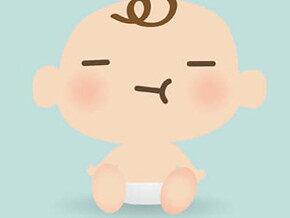
Food Allergy In Infants
The Allergy March: How Your Child's Symptoms Progress
Without a suitable early treatment and as the child grows older, allergy may progress and develop from minor symptoms towards more severe manifestations, following a process of six phases, scientifically referred to as the allergic march.
Practically, allergies in kids appear for the first time while baby is in the womb. In other words, pregnancy can be the first phase of the allergic march.
At this stage, a baby who is still a fetus develops allergy if one of his parents or siblings has allergy, if his mother smoked or ate allergenic foods or exposed herself daily to dust and pollution, while pregnant.
The second stage of the allergic march develops during early childhood. Signs and symptoms range mainly between diarrhea, vomiting, acute stomach aches and itching on the face, lips and bottom.
As for the third phase of the March allergies in kids, it manifests itself on the child while he still under two. Signs vary between itching and irritation after consuming specific foods or when exposed to airborne allergens. It is to be noted that Eczema is among the first and most common signs of allergy in children this age.
When the child is 3 years old, he may move from the third to the fourth phase of the allergic march. His allergy could then develop into Asthma (caused by the narrowing of the bronchial tubes), or food allergy against a specific food allergen, like eggs, fish, wheat, cow milk, peanut, etc, or allergy against dust build-up in beds and carpets, or allergy against animal fur, mosquito bites, pollen, cigarettes, wood, pollution or cleaning detergents, etc.
At this point, it is very important to start dealing with allergy symptoms and proceed with medical interventions to diagnose them and determine their causes and the best ways to treat and manage them, so the child’s condition won’t get worse and move towards the 5th and 6th phases of the allergic march.
So if you have allergy or relates to a family with a strong medical history with asthma and allergies, take your condition seriously and do your best to prevent your child from getting the disease or intervene earlier to treat him and stop his allergy progression!




















